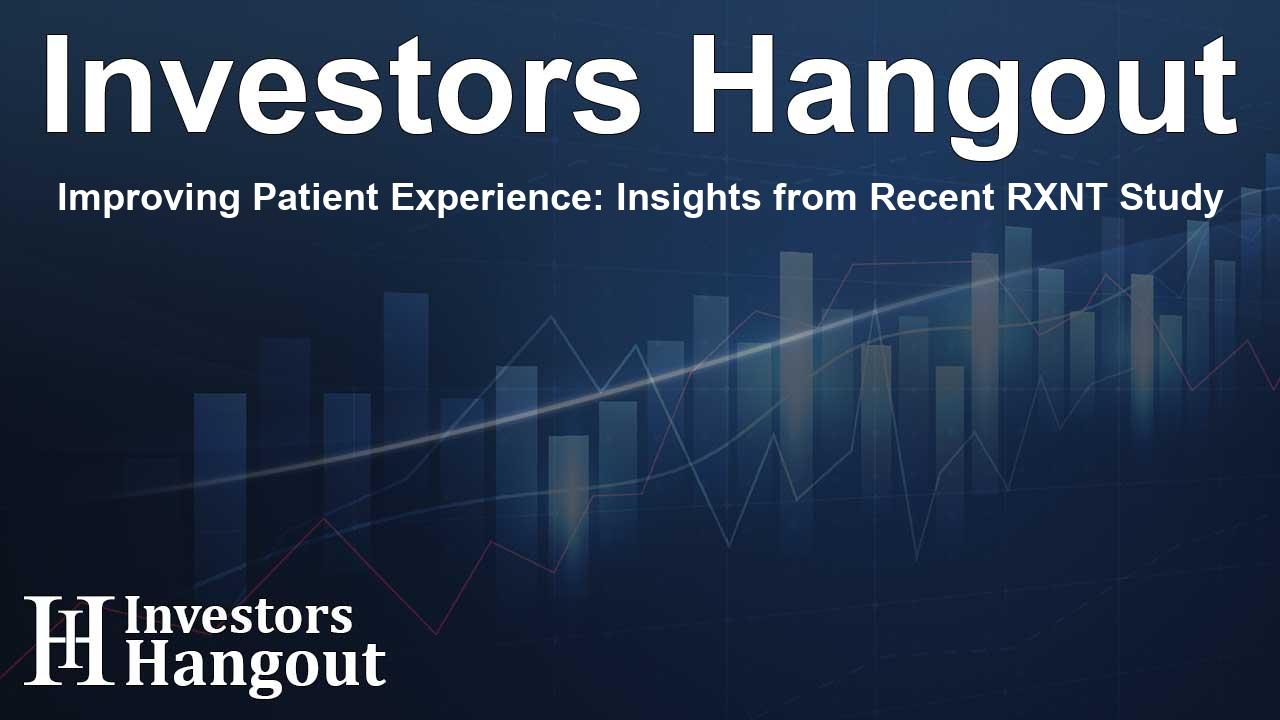Improving Patient Experience: Insights from Recent RXNT Study

Patient Satisfaction Trends and Barriers to Healthcare Access
The recent study by RXNT highlights key insights into patient satisfaction and healthcare access trends in the United States. This analysis emphasizes both the improvements and ongoing challenges faced by patients seeking healthcare services.
Rising Patient Satisfaction Amidst Struggles to Access Care
According to RXNT's groundbreaking 2025 Patient Perspectives survey, patient satisfaction has seen a notable uptick as hospitals and healthcare providers strive to enhance the quality of care. The survey, which examined responses from 1,501 general consumers, shows that patient experiences are improving due to better practices aimed at safety and efficiency. Nevertheless, significant barriers still impede access to these improvements.
Challenges Patients Encounter
Despite these advancements in patient care, many individuals report facing substantial obstacles. The survey indicates that 66% of respondents experience challenges when accessing healthcare services, and a significant 49% attribute their dissatisfaction to ineffective communication. This scenario raises urgent questions about how to promote systemic changes to alleviate these barriers.
Identifying Key Barriers
Several issues contribute to patient dissatisfaction and hinder access. Notable barriers include:
- High medical costs (28%);
- Difficulty securing an appointment (20%);
- The overwhelming burden of medical debt (16%);
- Inadequate insurance coverage (15%), among others.
Understanding these challenges is crucial for developing effective solutions in healthcare delivery.
The Role of Technology in Enhancing Patient Experience
Interestingly, over half of the surveyed consumers—53%—believe that integrating advanced technology would significantly improve their experiences as patients. However, healthcare providers are falling short of swiftly adopting these technological advancements. Many are still grappling with outdated systems that restrict the potential for improved patient interactions.
Call for Enhanced Tech Adoption
Delora Crowley, Clinical Product Director at RXNT, emphasized the imperative need for practices to embrace technology aligned with patient needs. She expressed concern that failure to adapt could lead to practices becoming obsolete. Crowley states, "Disconnected systems and high costs only serve to frustrate patients and stunt overall satisfaction. It’s crucial for healthcare professionals to rely on technology that effectively addresses current patient needs."
Understanding Patient Barriers Through Data
The findings from RXNT’s survey are invaluable for medical practices aiming to understand the barriers patients currently face. By examining the data, healthcare organizations can better grasp the challenges that hinder patient satisfaction and efficiency in care delivery. These insights will guide efforts to improve accessibility and adapt systems to better meet evolving patient preferences.
About RXNT
RXNT is a healthcare technology pioneer based in Maryland, dedicated to empowering medical practices and healthcare organizations through innovative, data-driven, AI-powered software solutions. Their remarkable technology suite includes EHR, Practice Management, Medical Billing, E-Prescribing, and Scheduling, which have gained the trust of healthcare professionals across the nation. RXNT has successfully processed over $6 billion in claims and transmitted more than 125 million prescriptions, showcasing its significant impact on the healthcare industry. To learn more about RXNT and its offerings, visit their official website.
Frequently Asked Questions
1. What did the RXNT study reveal about patient satisfaction?
The study showed an increase in patient satisfaction due to better care practices, but many patients still face access challenges.
2. What are the main barriers to healthcare access according to the survey?
Major barriers include high medical costs, difficulty getting appointments, medical debt, and gaps in insurance coverage.
3. How can technology enhance the patient experience?
Technology can streamline communication, enhance appointment scheduling, and improve overall access to healthcare services.
4. Why is the adoption of technology critical for healthcare practices?
Without adopting patient-centered technologies, practices risk becoming outdated and failing to meet changing patient needs.
5. What are the implications of the RXNT study for healthcare providers?
Healthcare providers should focus on addressing identified barriers and embrace technology to enhance patient experience and satisfaction.
About The Author
Contact Caleb Price privately here. Or send an email with ATTN: Caleb Price as the subject to contact@investorshangout.com.
About Investors Hangout
Investors Hangout is a leading online stock forum for financial discussion and learning, offering a wide range of free tools and resources. It draws in traders of all levels, who exchange market knowledge, investigate trading tactics, and keep an eye on industry developments in real time. Featuring financial articles, stock message boards, quotes, charts, company profiles, and live news updates. Through cooperative learning and a wealth of informational resources, it helps users from novices creating their first portfolios to experts honing their techniques. Join Investors Hangout today: https://investorshangout.com/
The content of this article is based on factual, publicly available information and does not represent legal, financial, or investment advice. Investors Hangout does not offer financial advice, and the author is not a licensed financial advisor. Consult a qualified advisor before making any financial or investment decisions based on this article. This article should not be considered advice to purchase, sell, or hold any securities or other investments. If any of the material provided here is inaccurate, please contact us for corrections.
